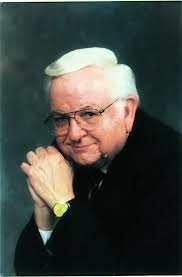Water Flows As One Body T. F. Tenney
Water resources have rarely, if ever, been the sole source of violent conflict or war. Yet it has been one of the major players in many wars. In fact, there is a long and highly informative history of conflicts and tensions over water resources, the use of water systems as weapons during war, and the targeting of water systems during conflicts caused by other factors.
It is amazing to think something on which all life forms depend can cause such division. We all need it, no matter our race or nation, yet somehow it seems we cannot As one man said, unite about it. We unite over “Find a river our need for it. Do you realize that approximately 70 build a bridge percent of the human body is and get over it.” made up of water? Yet, we cannot unite over the boundaries of it. Instead of bridges to each other, we build barricades over an essential ingredient to all of our existence. “Unity” seems elusive over such a pertinent need actually over many needs, both spiritual and physical. As one man said, “Find a river build a bridge and get over it.”
The Native American leader Tecumseh understood the power of unity. He attempted to unite all the tribes of the Indians against.the white man. He said, “If I could have unified them we could have driven the white man into the sea.” Tecumseh was made a prisoner on a reservation a hostage of his times. He said of the Indians, “We are a sadly defeated people. There was a time we could have easily defeated the white man foe. At that time, we were distracted and divided by lesser issues. The secondary battles drew us away from the primary battle. We could not unify against our common foe. Because we could not agree, we were defeated.”
Sadly, we bring this same lack of unity into Christianity as a whole and into the body of Christ. God wants us to dwell together in unity. Unity is the state of oneness, harmony, agreement. If each of us strives to become one with Him, we will find ourselves one with each other. Unity is not uniformity. We must learn to accept the differences among us without malice. Our bodies can never fulfill their great ambition if there is division.
In simple terms, cancer occurs when renegade cells start working against the unity of the body. This “disunity”—these un-unified cells—holds the power to destroy the body if left unchecked.
There is unmistakable power, anointing, and blessing that comes with unity. Psalm 133 shows us this: “Behold, how good and how pleasant it is for brethren to dwell in unity! It is like the precious ointment upon the head, that ran down upon the beard, Aaron’s beard: that went down to the skirts of his garments; as the dew of Hermon, and as the dew that descended upon the mountains of Zion: for there the LORD commanded the blessing, even life for evermore.” This text mentions the oil of anointing went down to the skirts of Aaron’s garment. It invites the simple question: What good is an anointing if it does not reach the place where we walk? Anointing just in our head, where we articulate it, is not sufficient. It must be in our feet, where we walk and live. The skirts are the closest part to the earth. Unity must come to earth. We must get it out of the clouds!
Dew brings growth even though it comes silently and unnoticed. We cannot always depend on the rain to come, but we can depend on the dew. Growth comes out of consistency. The
anointing is wonderful. However, we must have with it the dew of consistency. The psalmist said dwelling together in unity and harmony is like the anointing oil; it gives power. It is like the dew; it gives growth. Power and growth come out of unity.
The Gospel of John records some of the last prayers of Jesus on earth. He prayed for us to be one with Him and one with each other. Jesus said, “I pray for them, I pray not for the world” (John 17:9). Jesus has never prayed for the world. If He can get us straight, we will take care of the world. His request was “that they all may be one” and “that they also may be one in us: that the world may believe” (John 17:21). Revival is going to come out of oneness, the unity of God’s people. The world will not believe until we are one.
In the ancient Orient, there is folklore of an emperor who desired to test two of his leaders. Ultimately one of them was destined to become prime minister. When a breach appeared in the road leading to the royal palace, the first leader was sent to repair it. He erected a barricade from great timbers to prevent anyone from plunging to their death. He then erected signs that read, “Turn back! Danger!”
The second leader was sent out to see if he could improve upon the work of the first. Using the same material, he constructed a bridge across the breach. He turned over the danger signs and wrote, “This way to the palace.”
So our lives will be bridges or barricades. We may use the same material, but the wisdom of construction makes the difference. The spiritual life is a bridge over which man may cross and find God. It is a bridge over which he may cross and enhance his fellowship with his fellow man and his brothers in Christ. This is the work of unity and restoration—bridging the breach. Paul said, “Ye which are spiritual, restore such an one” (Galatians 6:1). There is such a definite need among us for building bridges. We have so many barricades placed in the way that we cannot have revival and unity, we cannot reach out to those in need, and why we cannot erect that much-needed bridge. The same thought, energy, and ingenuity can pick up the pieces, and instead of saying, “Road out, danger ahead!” we can erect a sign, “This way to the city of ‘We Can Do It.
Paul said, “For God hath not given us the spirit of fear” (II Timothy 1:7). One translation says, “He has not given us the spirit of frustration.” It is not God’s desire that the job He has called us to do frustrates us. He wants us to be overcomers. I John 5:5 states: “Who is he that over cometh the world, but he that believeth.” Overcoming is not some spiritual abstraction, but a personal, triumphant capability. What we need is a sanctified sense of superiority—a knowledge and acknowledgement of our abilities in God. We can overcome the pressures the world thrusts on us by believing. By believing what? That His Word is true and that unity is the way. I want to be a bridge builder.
I want to reach out to hurting people, even those with whom I might disagree on some ideas and issues. Thank God for the rights we have as Americans to disagree—free speech, freedom of religion. These liberties are not taken for granted. Yet, in the Spirit we must be one.
Once I heard a speaker pose some pertinent questions: “Where do we get the right of free speech, of assembly? Did it come from Congress, the courts? If our rights came from them, then they could take them away. Our founding fathers had to face that problem. They looked across the waters, where it was said that the majority is the custodian of minority rights. They found the answer. They set it down in the second paragraph of the Declaration of Independence; ‘It is self-evident that all men are created equal’—the Creator had endowed man with certain inalienable rights, among which are the rights to life, liberty and the pursuit of happiness. The Creator has given us those rights. Therefore, they are inalienable. If we wish to keep our forest, we must keep our trees. If we wish to keep the pendulum swinging, we must make it dependent upon a clock. If we wish to keep our perfume, we must keep our flowers. If we wish to keep our rights, we must keep our God and His Word. That is why our Declaration of Independence is fundamentally a declaration of dependence on God. That is why we have rights and liberties. Our founding fathers were bridge builders.”
This same gentleman continued: “We constantly hear about our rights and liberties, but how about our duties? Why are there not leagues organized in defense of duties and responsibilities? There is no such thing as a right without a duty. Rights and duties are correlated like the two sides of a saucer. It is popular, for example, today to say, ‘Well, I have to be me. I have to develop my own identity.’ How do we know our identities? By boundaries, by limits. How do I know my responsibilities, my duties, my limits? This is how we come to a sense of our duties and responsibilities. I wonder if it would not be a good idea to put a statue on the west coast. On the east coast we have the Lady of Liberty holding out the torch of rights and liberties. Why not on the west coast a statue to duty and responsibility in which light is thrust outward to neighbors; in which the hand is open to feed the poor; in which we will acknowledge as a nation that no one has a right unless he has a duty to God and to others.”
Did you ever stop to consider what happened to those original bridge builders, the founding fathers who began with such unity? There were fifty-six signers of the Declaration of Independence. What became of them? Nine of them died in the Revolutionary War; five were captured by the British and died under torture; twelve had their homes ransacked and burned to the ground. Doctor Witherspoon’s home and college library were burned; Thomas Keene was compelled to move five times in five months to escape capture. He settled at last in a tog cabin on the river. Thomas Nelson, when his home was occupied by General Cornwallis, urged Washington to open fire and destroy his home. He died in poverty. Seventeen of the signers lost everything they had. The fifty-six pledged, “Our lives, our fortunes, our sacred honor.” Many of them lost their lives and their fortunes. Not one of them lost his sacred honor. They were willing to reach out regardless of the cost. The future offered too much.
We need to return to the true sense of fellowship, a true sense of brotherly love, a true sense of community understanding. Could it be in this affluent society we have apostatized to little religious islands where everyone builds his own kingdom and does his own thing? Have we forgotten Paul’s admonition that by one Spirit are we all baptized into one body?
There is one great head of the church, the sovereign, the Lord Jesus Christ. He built a bridge from the halls of heaven to the horrors of earth. He condescended and communicated, not
because we were worthy, but because He loved. We must have the same burden our Founder had and that is a burden to reach out.
To think this great and Holy God would come to us. What is true holiness? Someone has said, “The aim of holiness is to ‘be holy as He is holy’ Yet some would have us be holy as they are holy. True holiness will include, yet extend beyond, the clothesline to the lifeline. It reaches beyond mere legalism and spiritual pride, and manifests love, compassion, patience, and humility.
The angry mob dragged the adulterous woman before Jesus ready to stone her to death. While they were legally correct, they had murder in their hearts. Jesus had only compassion. The believer is not only holy in the warm sanctuary and spiritual greenhouse of the church. He keeps himself holy when the cold, chilling winds blast against his soul. An individual does not become holy by staying away from the world, but he keeps himself holy in the world. The life of holiness does not isolate us; it insulates us.
Refusing the king’s meat did not make Daniel holy; he refused to eat because he was holy. Joseph did not become holy by running out of his coat held by Potiphar’s wife; because he was holy he ran out of his coat. Stephen did not become holy by being stoned; he was stoned because he was holy.
“Be ye holy, for I am holy,” saith the Lord. As holy as He is, God is still yet a bridge builder. What good would it do to build a bridge with one end sticking out over nothing? God knew He had to communicate with something, someone, somewhere. He chose us. I must be like Him building bridges and not barricades—always working toward unity.
I believe God loves with a special love that man who has a passion for the impossible. The Lord is not simply interested in nibblers of the impossible, but grabbers of the impossible through faith in Him. I think we have scriptural ground for praying for a last day outpouring of the Spirit. The prophet stated the former rain was moderate. Did not that indicate the latter rain would be greater than the former? The glory of the latter house shall be greater than the glory of the former. Unity will bring this to pass. Faith sees the way out of deep waters, God brings men into deep waters, not to drown them but to cleanse them. Revival is the only answer to the dilemma of our world. There is nothing that enhances it like a true conception of fellowship in unity.
Paul wrote, “I thank my God upon every remembrance of you, for your fellowship in the gospel from the first day until now” (Philippians 1:3, 5). Fellowship is one of the most valuable assets of the Christian journey. Miles or circumstances, which might separate us from one another physically, cannot deter the fellowship of the Spirit we feel with one another through Him.
Paul used the word “fellow” in a variety of combinations with respect to different Christian experiences and services. He speaks of fellow-citizens (Ephesians 2:19), fellow-heirs (Ephesians 3:6), and fellow soldiers (Philippians 2:25). He also mentions fellow prisoners, fellow servants and Titus is referred to as “my partner and fellow helper” (II Corinthians 8:23). At times the vigil is lonely, the hours are long, and the battle is torrid; but thanks be to God who giveth us the victory and unity when we work on fellowship.
Leonard Bernstein, a leader of great philharmonic orchestras was asked one time, “What is the hardest instrument to get anybody to play?” He answered, “That’s easy second fiddle.” Second fiddle is the hardest position to fill. The interviewer went on to ask, “Why is that so?” He responded, “Well, for several reasons. First, whoever plays second fiddle in a large orchestra can’t be seen they are in the back row. Second, without a second fiddle an orchestra can have no harmony. It can make noise, but it will never have harmony.”
Until someone is willing to get out of the spotlight and play second fiddle, we will not have harmony. When a church moves in true unity and fellowship, everyone cannot be the leader. There is only one conductor. Sometimes you have to fill an insignificant position and just give your best for the team. What would happen in the Christian arena if it did not matter who was recognized or lifted up? It is yet to be seen what could be accomplished if we did not care who got the credit.
If we are going to be like Him, and be in His image, we must walk in unity. We must constantly throw off the inherited nature of Satan and become more like the second Adam, It is a process. A piece of fruit is perfect and mature in each stage bud, blossom, nubbin, and fruit. It is not what it is going to be but it is perfect in its particular state.
As we all strive toward unity with Him and with each other, there is a promise found at the end of Psalm 133: “For there the LORD commanded the blessing, even life for evermore.” Not only is it “good and pleasant for brethren to dwell together in unity” it receives the blessing of God!
The above article “Water Flows As One Body” is written by T. F. Tenney. This article was excerpted from chapter five in Tenney’s book Water from an Old Well.
The material is copyrighted and should not be repainted under any other name or author. However, this material may freely be used for personal study or purposes.
Click
Cover
To
Purchase





2 thoughts on “Water Flows As One Body by T F Tenney”
Comments are closed.